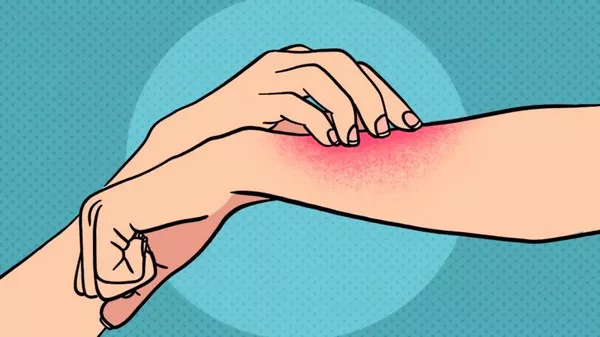Eczema, a chronic inflammatory skin condition affecting millions worldwide, poses a significant burden on individuals’ quality of life. Its hallmark symptoms include redness, itching, and the formation of dry, scaly patches on the skin. While the precise etiology of eczema remains elusive, extensive research has shed light on various factors contributing to its development. Among these factors, one stands out as the most common trigger: a complex interplay of genetic predisposition, immune dysregulation, and environmental influences.
Genetic Predisposition: Unraveling the Genetic Roots
Genetics plays a pivotal role in the development of eczema, with hereditary factors contributing significantly to an individual’s susceptibility to the condition. Studies have identified several genes associated with eczema, notably those involved in skin barrier function and immune response regulation. One such gene is filaggrin (FLG), which encodes a protein crucial for maintaining the integrity of the skin barrier. Mutations in the FLG gene compromise the skin’s ability to retain moisture and protect against external irritants, making individuals more prone to eczema.
Moreover, genetic variations affecting the expression of cytokines, signaling molecules involved in immune responses, have been implicated in eczema pathogenesis. Disruptions in the delicate balance of pro-inflammatory and anti-inflammatory cytokines can lead to chronic inflammation characteristic of eczema.
Immune Dysregulation: The Role of the Immune System
The immune system plays a dual role in eczema, acting as both a defender against pathogens and a mediator of inflammatory responses. In individuals predisposed to eczema, immune dysregulation occurs, leading to an exaggerated inflammatory response to various triggers. This dysregulation is often characterized by an imbalance between T-helper 1 (Th1) and T-helper 2 (Th2) immune responses.
Th2-mediated inflammation predominates in eczema, driving the release of cytokines such as interleukin-4 (IL-4), interleukin-5 (IL-5), and interleukin-13 (IL-13). These cytokines promote the production of immunoglobulin E (IgE) antibodies, which trigger allergic reactions and further exacerbate skin inflammation.
Additionally, abnormalities in regulatory T cells (Tregs), which play a crucial role in immune tolerance and suppression of excessive inflammation, have been observed in individuals with eczema. Dysfunction of Tregs contributes to unchecked inflammatory responses and perpetuates the chronic nature of the condition.
Environmental Influences: Navigating Triggers in the Surroundings
While genetic predisposition and immune dysregulation lay the foundation for eczema, environmental factors serve as potent triggers that exacerbate symptoms or precipitate flare-ups. These triggers encompass a wide range of irritants and allergens present in the environment, including:
1. Allergens: Common allergens such as pollen, dust mites, pet dander, and certain foods can provoke allergic reactions in susceptible individuals, triggering eczema flare-ups.
2. Irritants: Exposure to irritants such as harsh soaps, detergents, wool clothing, and environmental pollutants can disrupt the skin barrier and trigger inflammation.
3. Climate: Extremes in temperature and humidity can exacerbate eczema symptoms, with cold, dry conditions often leading to increased skin dryness and irritation.
4. Microbial Factors: Bacterial and fungal infections, particularly with Staphylococcus aureus and Candida species, can colonize the skin of individuals with eczema, exacerbating inflammation and skin damage.
Furthermore, psychological stress has emerged as a significant environmental factor influencing eczema severity. Stress triggers the release of stress hormones such as cortisol, which can modulate immune responses and exacerbate inflammation in the skin.
Conclusion
In conclusion, eczema represents a multifaceted condition influenced by a complex interplay of genetic predisposition, immune dysregulation, and environmental factors. While genetic susceptibility lays the groundwork for the condition, immune dysregulation perpetuates inflammation, and environmental triggers precipitate flare-ups. Understanding the intricate mechanisms underlying eczema pathogenesis is crucial for developing targeted therapeutic strategies aimed at restoring immune balance, strengthening the skin barrier, and minimizing exposure to triggering factors.
Moving forward, research efforts focused on unraveling the molecular mechanisms driving eczema development and identifying novel therapeutic targets hold promise for improving treatment outcomes and enhancing the quality of life for individuals living with this chronic skin condition. By addressing the root causes of eczema through a comprehensive approach encompassing genetics, immunology, and environmental factors, we can pave the way for more effective management and ultimately, better control of this challenging condition.

























